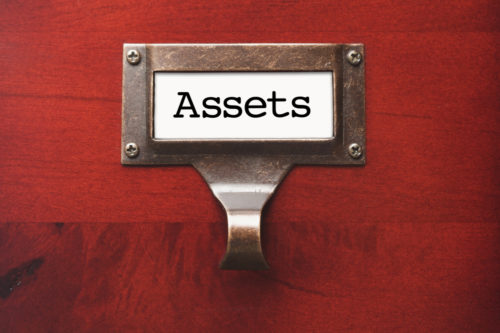When you own items that bring value to yourself or your company, they’re considered assets. The assets you own as an individual contribute to your net worth and the assets your business owns increase its valuation. It’s important to understand the value your assets have gained over the years. This will not only give you an idea of how much cash you can access, but also the value and worth you hold collectively with your possessions.
Table of Contents
What Are Assets?
Your assets are anything you own that carries monetary value. These assets are useful because they can be sold or liquidated to pay off debts and liabilities. There are many types of assets and some of them gain value over time while others may lose value.
When you add up the money you’re currently holding and your other assets, you can calculate your net worth. Some of the most common assets you may own include:
- Precious metals, such as silver and gold.
- Investments, such as securities and bonds.
- Art and collectibles, including antiques.
- Supplies or inventory your business has in stock waiting to be sold.
- Machinery, such as office equipment or production materials.
- Furniture and fixtures, including desks, chairs, or lighting.
- Technology, such as computers or smartphones.
- Transportation, including cars, motorcycles, or boats.
- Real estate, such as your home, investment properties, or land.
- Cash, including all money currently in your bank accounts.
While some of these assets obviously hold value, such as investments, other items are not as obvious. Your jewelry or art can also be considered assets because they hold value and contribute to your net worth.
Types of Assets
There are different types of assets, which are mainly defined by your access to them and their ability to contribute to your worth. By dividing your assets into different categories, you’re able to better understand which assets you can liquidate and which ones you don’t necessarily have tangible access to at all times.
Liquid Assets Definition
A liquid asset is one that can be readily converted into cash at any time. While the value of a liquid asset is only realized when it’s sold, these assets are considered the same as cash for the most part.
The money in your checking or savings account is a liquid asset since you can access it anytime you need to pay off a debt or settle a liability. Stocks are also considered liquid assets because you can convert them to cash relatively quickly. Funds you carry in a money market account are also considered liquid because you can cash them out of the account in a short period of time.
Fixed Assets Definition
The term “fixed assets” is generally used when defining the assets a business owns. Fixed assets are pieces of property or equipment a business owns and uses during operation with the goal of generating income. Sometimes referred to as capital assets, fixed assets aren’t expected to be converted to cash in the short term.
For example, the printer that a printing company uses is considered a fixed asset, as well as the manufacturing equipment that an apparel company uses to produce its clothing. Additionally, the tractor a farmer uses to take care of land and grow crops is considered a fixed asset for the farm.
Current Assets Definition
Current assets are the assets a business plans to sell or utilize for profit. A business’s current assets may include its stock and inventory, cash, or securities. These current assets are used in daily operations to pay for operating expenses and to pay for debts when a business is growing. When a business is being valued, its current assets are taken into consideration to determine its valuation.
Tangible Assets Definition
A tangible asset is one that has a transactional exchange value, which means it can be easily valued and sold for a specific dollar amount. Tangible assets are usually physical. These assets may include the money in a savings account, the equipment a business owns, or the property owned by an investor.
Intangible Assets Definition
Intangible assets are the opposite of tangible assets because they don’t usually take on a physical form and cannot easily be valued or sold. It’s harder to value intangible assets because there isn’t a clear-cut exchange of a physical product for money.
Examples of intangible assets include copyrights, patents, or trademarks. Computer software and other intellectual property are also considered intangible assets. While these assets are valuable, it’s hard to put a specific value on them since it’s not clear how much they’re worth.
Calculating Your Assets
When calculating the value of your assets, keep in mind these values fluctuate from the original cost. While you’re examining the assets you own and deciding their value, factor in depreciation (the extent to which an asset’s value may have lowered over time). For example, when valuing the worth of your company’s printer, keep in mind it may have depreciated since there are newer and more advanced technologies on the market today.
You should also factor in the fair market value of the asset when determining its worth. For example, if you’re trying to calculate the value of an investment house you own, look into comparable property values in the area and consider the current market conditions. These are the determining factors for how much you could realistically sell the property for right now. You can calculate the value of each asset you own by taking the original cost and deducting depreciation, while taking fair market value into account.
Image Source: https://depositphotos.com/





